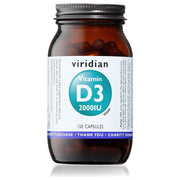100,000+ Orders Shipped
Call us free: 0800 098 8888
Family Run 40 Years +
Money Back Guarantee
Vitamin D
Can’t find what you are looking for? Contact Us and we will look to get it for you (at a great price and no delivery charge). If you are the first person to suggest a new product to us that we start to keep in stock, we’ll even send you one for free!
Vitamin D is a fat soluble vitamin that is naturally present within certain food sources, but can be found in supplements and fortified products. Vitamin D is synthesized by our bodies when UV rays from sunlight strike our skins and trigger its production.
Recommended Amounts
The recommended dietary allowance (RDA) for vitamins D provides the daily amounts needed to maintain healthy bones, and normal calcium metabolism in adults who get enough sunlight.
For adults aged 19 years and older, the recommended dietary allowance for vitamin D is 600 international units (IU) per day for both males and females, and 800 IU (20 mcgs) per day for people 70 years old and above.
Vitamin D deficiency
There are several things that can affect your ability to obtain enough of your daily recommended intake of vitamins through sun exposure alone. If you live in an area where there is not enough sunlight for you to get adequate amounts of natural ultraviolet light, you may be less likely to take in enough of the important nutrient through the skin.
These factors can increase the risk of developing a deficiency of vitamin D. That's why it’s important to supplement your body with enough vitamins D from non-sunshine sources.
- high pollution
- use sunscreen
- spend most of your time indoors
- live in a big city where buildings block sunlight
- have darker skin (The higher the levels of melanin, the less vitamin D your skin can absorb.)
Safety and side effects
When taken in appropriate amounts, vitamins D are generally considered safe.
But if you take too much vitamin D from supplements, it could be harmful. People aged 9 and older, adults, pregnant and nursing mothers who take more than 4 000 IU per day of vitamin D.
Side effects include:
- Nausea and vomiting
- Poor appetite and weight loss
- Constipation
- Weakness
- Confusion and disorientation
- Heart rhythm problems
- Kidney stones and kidney damage
Who does vitamin D deficiency affect?
Vitamin D deficiencies occur in everyone, from babies to adults.
It has been suggested that vitamin D deficiency may be more prevalent among darker-skinned individuals and those wearing clothes with extensive coverage.
What are the symptoms of vitamin D deficiency?
Vitamin D deficiencies in adult patients may cause these symptoms:
- tiredness, aches, and pains
- severe bone or muscle pain or weakness
- stress fractures, especially in your legs, pelvis, and hips
A doctor can diagnose a vitamin D deficit by performing a simple blood check. If you have a bone deficiency, your doctor may prescribe X-ray tests to determine whether there is any damage to your bones.
If you are interested to learn more about Vitamin C or Vitamin B?
































